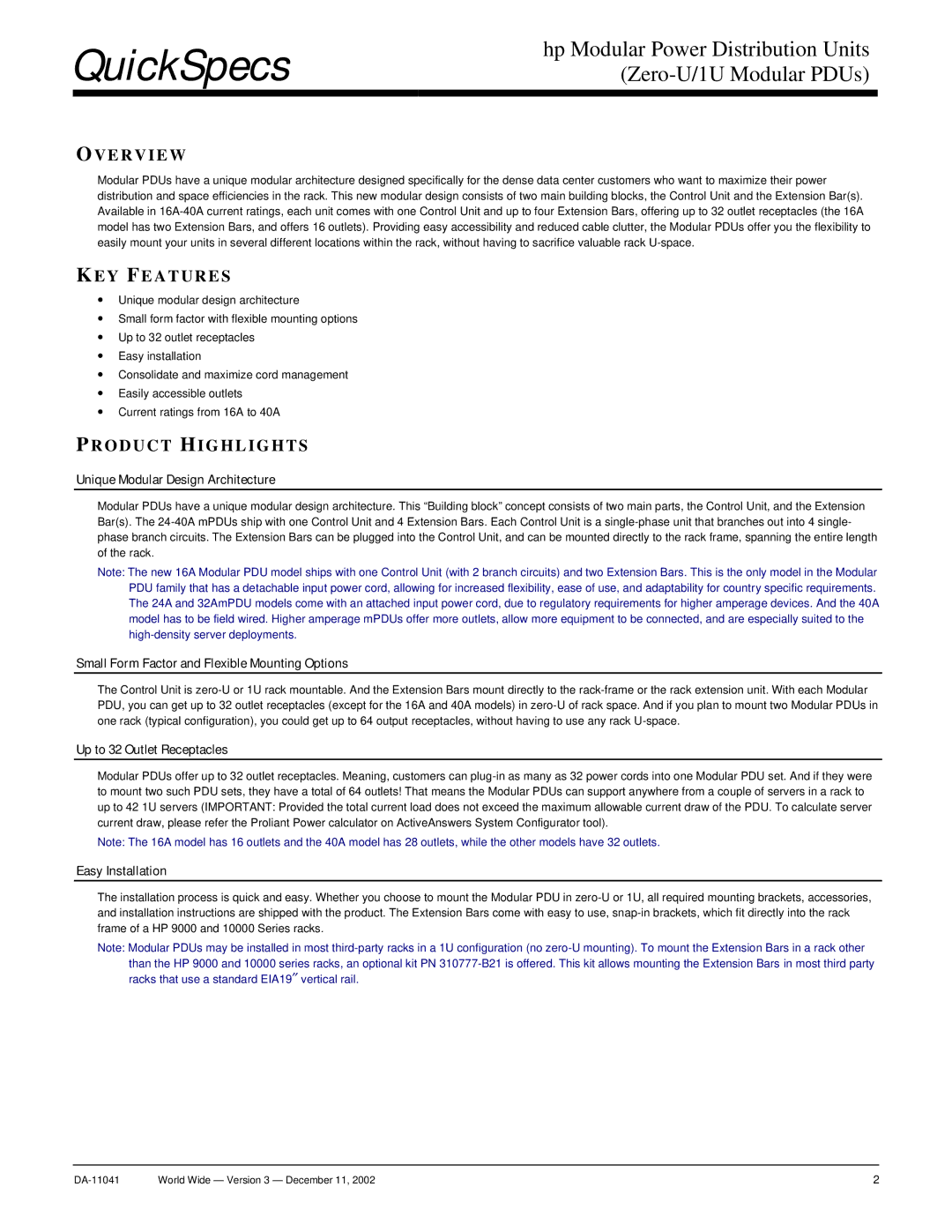16A, 32A specifications
The HP 32A and HP 16A are innovative printing solutions designed to enhance productivity and ensure high-quality output for various printing needs. Both models cater to different user requirements, with their own set of features, technologies, and characteristics that make them essential tools in both office and home environments.The HP 32A is known for its impressive print speed and efficiency, making it ideal for businesses that require high-volume printing. This model boasts a rapid first page out time, allowing users to produce documents quickly without sacrificing quality. The HP 32A utilizes advanced LaserJet technology, which ensures crisp text and vivid graphics, perfect for professional-grade printouts. Additionally, this printer supports automatic duplexing, reducing paper usage and making it more environmentally friendly.
On the other hand, the HP 16A is tailored for smaller offices or home users who need reliable performance without the complexities of larger machines. It offers a balance between affordability and functionality, ensuring that users can produce high-quality documents without extensive investment. The HP 16A incorporates HP’s proprietary JetIntelligence technology, which optimizes energy consumption and provides consistent print results while extending the lifespan of the toner cartridge.
Both models share similar design characteristics, offering compact footprints that make them suitable for various workspace sizes. They also feature user-friendly interfaces, allowing for easy navigation and seamless operation. Connectivity options are diverse, with standard USB support and the capability to connect wirelessly to enable remote printing from mobile devices – an essential feature in today’s digital world.
One significant characteristic of both the HP 32A and 16A printers is their toner cartridge compatibility. They are designed to work with HP's high-yield toner cartridges, which significantly reduce the cost per page and allow for extended printing periods between replacements. This is particularly advantageous for users who print regularly and need reliable, cost-effective solutions.
In conclusion, the HP 32A and HP 16A printers stand out as reliable options for users seeking efficiency and quality in their printing tasks. With their combination of speed, advanced printing technologies, and cost-effective operation, these printers meet the diverse demands of modern-day printing needs, ensuring a seamless experience for any office or home setting.

